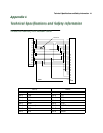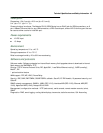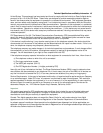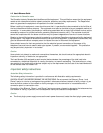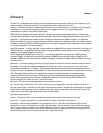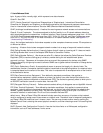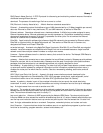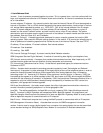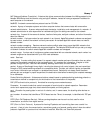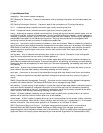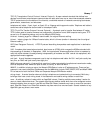Glossary 1
GG
GG
ll
ll
oo
oo
ss
ss
ss
ss
aa
aa
rr
rr
yy
yy
Access Line: A telephone line reaching from the telephone company central office to a point usually on your
premises. Beyond this point the wire is considered inside wiring. See also Trunk Line.
analog: In telecommunications, telephone transmission and/or switching that is not digital. An analog phone
transmission is one that was originally intended to carry speech or voice, but may with appropriate
modifications be used to carry data of other types.
ANSI (American National Standards Institute): Devises and proposes recommendations for international
communications standards. See also Comite Consultatif International Telegraphique et Telephonique (CCITT).
AppleTalk: A comprehensive network system designed and developed by Apple Computer, Inc. AppleTalk
allows many different types of computer systems, printers, and servers to communicate on a variety of cabling
schemes, including LocalTalk and Ethernet cabling. In this manual, AppleTalk refers especially to the protocols
or rule sets that govern this communication.
AppleTalk address: A unique identifier for each device using AppleTalk that allows information to be sent and
received correctly. An AppleTalk address always includes a network number wherever two or more AppleTalk
networks are connected together by routers.
AURP (Apple Update-based Router Protocol): An enhanced AppleTalk routing protocol. AURP provides
improved support for AppleTalk over wide area networks (WANs) and tunneling through non-AppleTalk (IP)
networks. AURP features include network number remapping, clustering of remote network numbers, and hop
count reduction.
backbone: A network topology consisting of a single length of cable with multiple network connection points.
Bandwidth: The range of frequencies, expressed in Kilobits per second, that can pass over a given data
transmission channel within a network. The bandwidth determines the rate at which information can be sent
through a channel - the greater the bandwidth, the more information that can be sent in a given amount of time.
BAP: Bandwidth Allocation Protocol. Manages the dynamic bandwidth allocation of implementations
supporting the PPP multilink protocol. This is done by defining the Bandwidth Allocation Protocol (BAP),
as well as its associated control protocol, the Bandwidth Allocation Control Protocol (BACP). BAP can be
used to manage the number of links in a multilink bundle.
baud rate: The rate of the signaling speed of a transmission medium.
bit: A binary digit; the smallest unit of data in the binary counting system. A bit has a value of either 0 or 1.
bits per second (bps): A measure of the actual data transmission rate. The bps rate may be equal to or greater
than the baud rate depending on the modulation technique used to encode bits into each baud interval. The
correct term to use when describing modem data transfer speeds.
bps: See bits per second.
branch: A length of cable in a star network that goes from the center of the star to a wall jack.
broadcast: A network transaction that sends data to all hosts connected to the network.
Burstiness: Data that uses bandwidth only sporadically; that is, information that does not use the total
bandwidth of a circuit 100 percent of the time. During pauses, channels are idle; and no traffic flows across
them in either direction. Interactive and LAN-to-LAN data is bursty in nature, because it is sent intermittently,
and in between data transmission the channel experiences idle time waiting for the DTEs to respond to the
transmitted data user’s input of waiting for the user to send more data.



